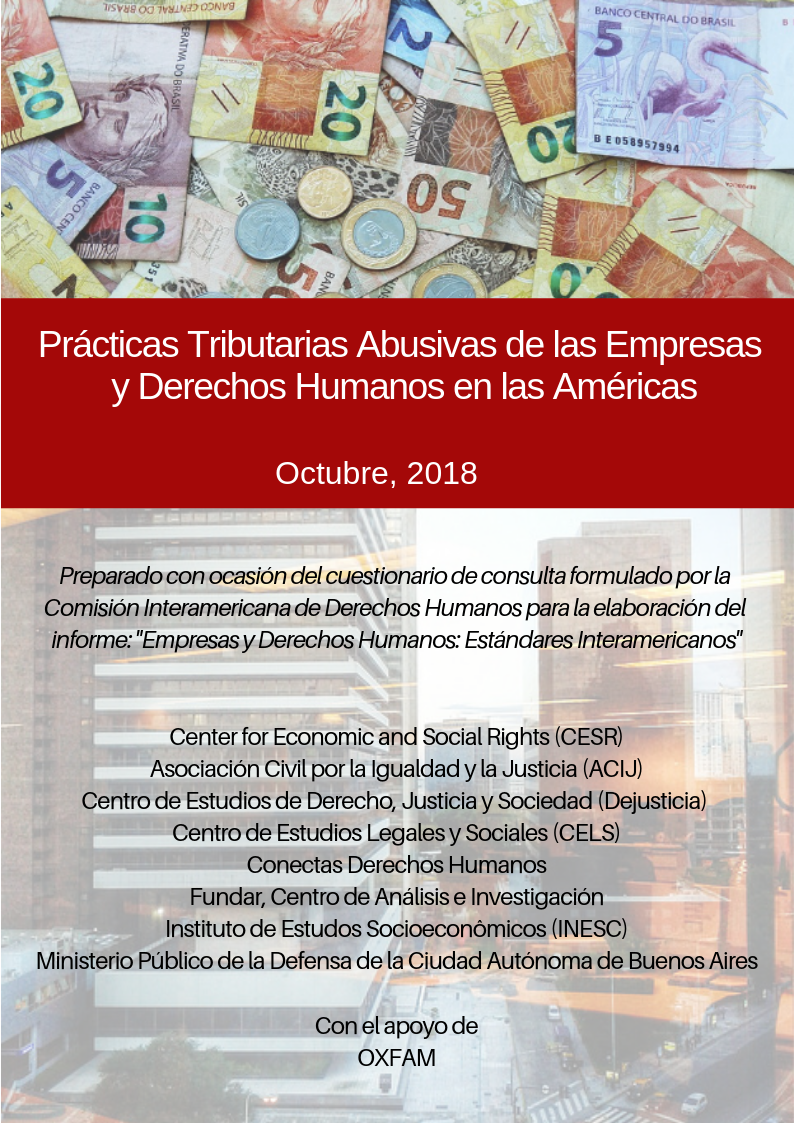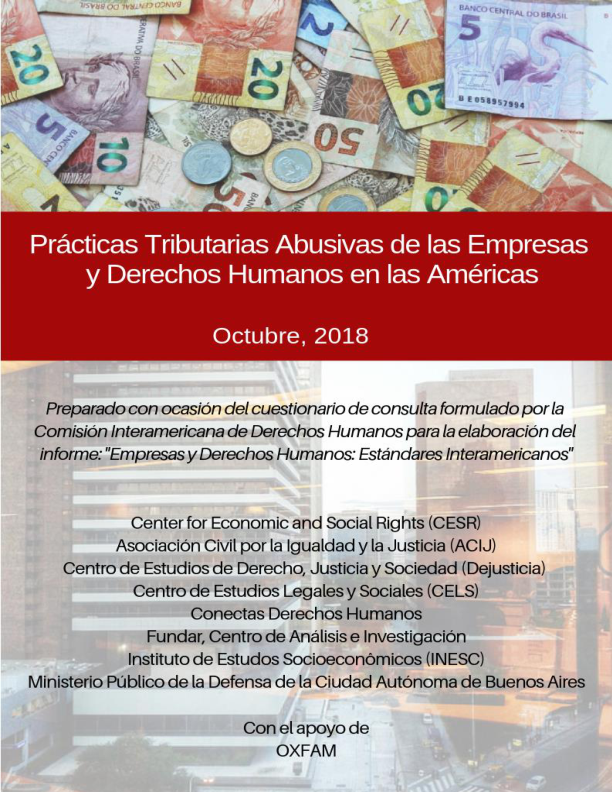Abusive corporate tax practices are a structural obstacle to human rights fulfillment in the Americas. They not only deprive States from valuable resources to invest in key goods and services but also end up shifting the tax burden away from the most profitable corporations toward individuals and small and medium-sized business. Extreme inequality within and between countries is one outcome. Growing mistrust in both multinational companies and public institutions is another distinct consequence. Human rights norms provide a frame of reference to guide both corporate practices in tax matters and the policy responses of the States against corporate tax abuse.
Abusive Tax Practices of Companies and Human Rights in the Americas was compiled by a coalition of Latin American organizations in response to the consultation opened by the Special Rapporteurship on Economic, Social, Cultural and Environmental Rights (SRESCER) of the Inter-American Commission on Human Rights (IACHR) for the preparation of the first thematic report on Business and Human Rights. With this report, the coalition seeks to help clarify and systematize regional normative standards around corporate tax practices. The report also works to fulfill the IACHR aim of strengthening legislation and public policies throughout the continent that address human rights violations committed and/or facilitated by companies, as well as to clarify and develop standards for the legal obligations of OAS Member States in this field.
The report was drafted by CESR with contributions from the Instituto de Estudos Socioeconômicos (INESC), Conectas Derechos Humanos, Ministerio Público de la Defensa de la Ciudad Autónoma de Buenos Aires, Asociación Civil por la Igualdad y la Justicia (ACIJ), Centro de Estudios Legales y Sociales (CELS), Centro de Estudios de Derecho, Justicia y Sociedad (Dejusticia), Fundar and Oxfam.

